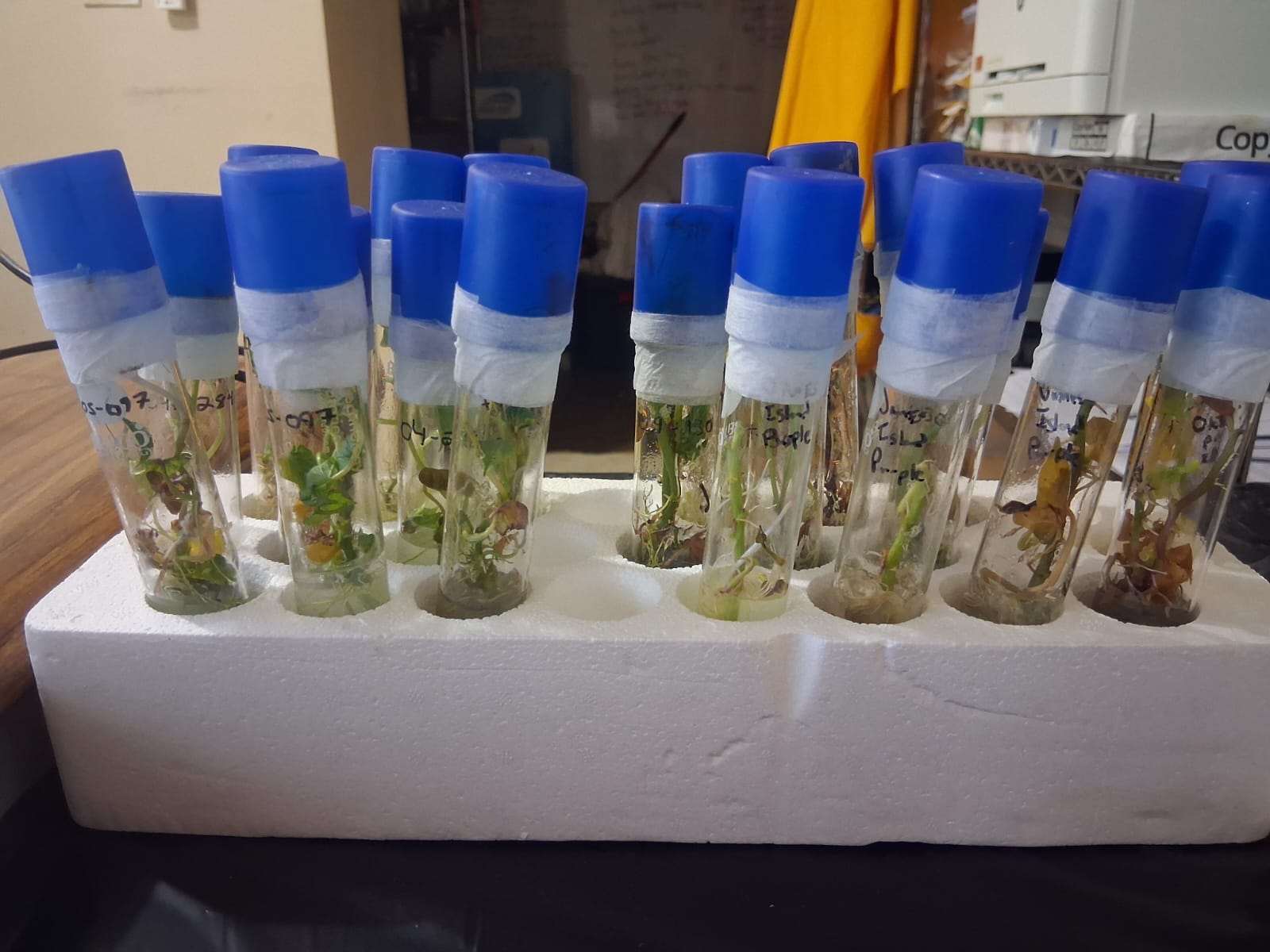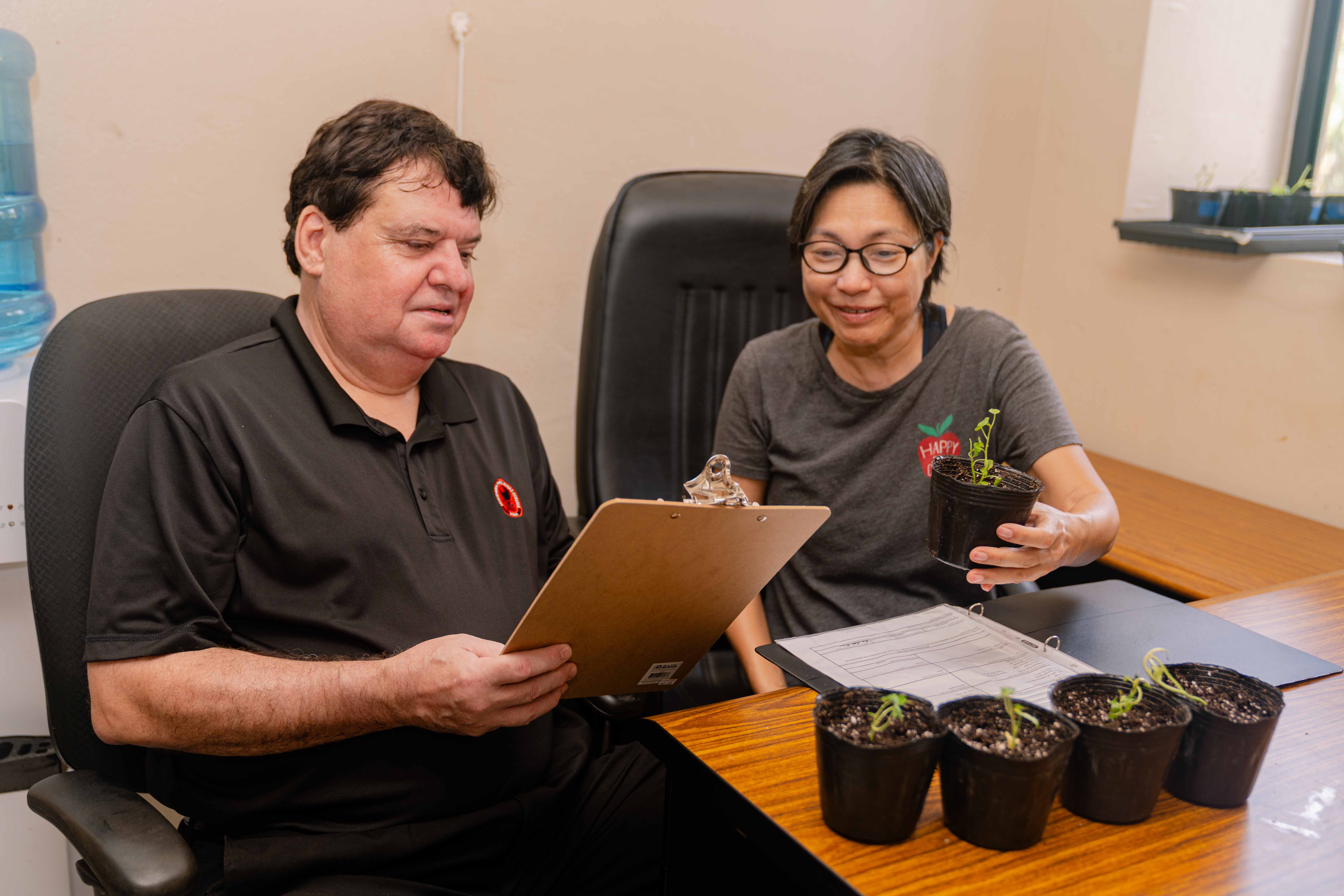In a strategic move to strengthen the Commonwealth’s food system and expand economic opportunities for local farmers, the Northern Marianas College Cooperative Research, Extension, and Education Services (NMC-CREES) Agriculture Production program is cultivating seven new sweet potato varieties for eventual commercial distribution in the CNMI.
Received in the form of tissue cultures from the United States Department of Agriculture Agricultural Research Service (USDA/ARS) Vegetable Laboratory in Charleston, South Carolina, the seven varieties are currently undergoing early growth trials at the CREES Agriculture Research Station in As Perdido. As sweet potato is already one of the most widely produced export crops in the CNMI, this initiative aims to increase both agricultural output and economic returns for the local community.
Dr. Adrian Ares, NMC-CREES State Program Leader and Scientist expressed his excitement for the seedlings. “We are looking for sweet potato genotypes that have high yields, good tuber characteristics, and resistance to pests such as the sweet potato weevil. We are grateful to USDA/ARS and Washington State University for helping with this endeavor. Sweet potato is a remarkable food because of high nutritional and fiber content as well as low calories compared to other food like potatoes. It ranks fifth most important food crop in the tropics and seventh in the world.” Dr. Ares continued, “I am convinced that crop yields, produce quality, and marketability of sweet potato can be improved so the crop regains its prime place in regenerative agriculture in the CNMI. These plant materials came from far away and we are committed to test new varieties for the foreseeable future.”
By introducing new, high-quality sweet potato strains into the market, CREES is not only diversifying healthy local food options but also laying the groundwork for increased sales, value-added product development, and potential export opportunities. These efforts align with broader goals to reduce dependence on imported food, enhance food security, and stimulate the agriculture sector as a viable contributor to the CNMI economy.
“Local farmers will benefit from having more resilient and marketable crop options,” said NMC-CREES administrator Patty Coleman. “This could open doors to more consistent income, small business development, and eventually, even agro-tourism or export partnerships.”
The seven varieties under cultivation include:
- JI Purple
- Oklahoma Purple
- Purple Knight
- USDA-04-136
- USDA-04-284
- USDA-05-097
- USDA-09-130
Once field trials are complete and the varieties are proven suitable for the local climate and soils, CREES plans to scale up production and work with farmers to introduce these varieties into local stores, restaurants, and food processing ventures.
This initiative marks a promising step toward agricultural innovation that supports economic development and long-term sustainability in the Northern Mariana Islands. The NMC-CREES Agriculture Production Program will monitor the growth stages of the seedlings as they continue to flourish at the Agriculture Research Station. For more information about the NMC-CREES Agriculture Production Program, please visit crees.marianas.edu.

The journey begins: New sweet potato tissue cultures are seen in their test tubes prior to being transferred for cultivation.

NMC-CREES’ Agriculture Production Program Leader Dr. Adrian Ares examines one of the seven sweet potato seedlings alongside Research Assistant Winnie Lee.